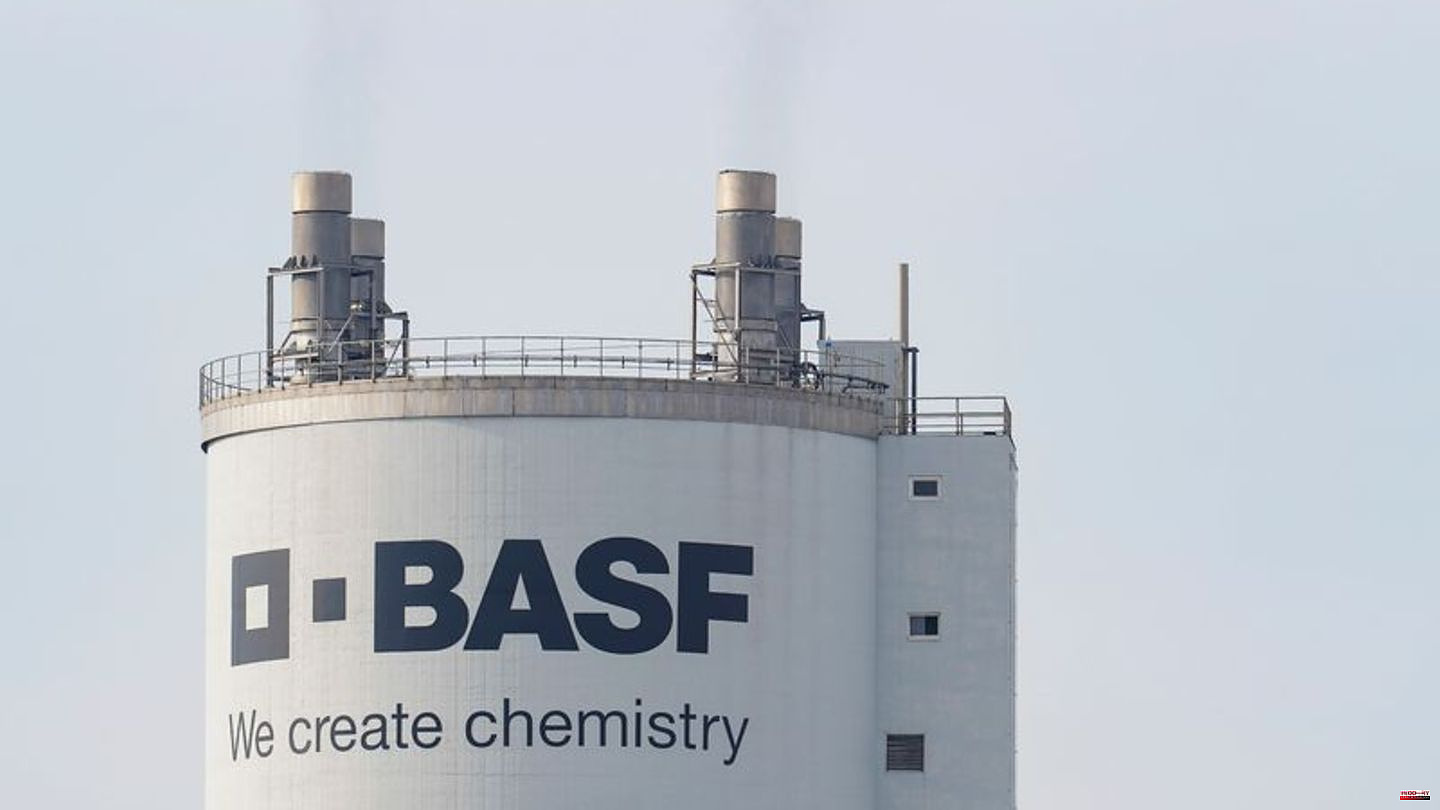The world's largest chemical company, BASF, is reacting to a slump in profits in the energy crisis and is cutting a total of 2,600 jobs worldwide. Almost two-thirds of this is in Germany, the Dax group announced on Friday. The dismantling also affects the main plant in Ludwigshafen. There, 700 jobs in production are affected by the cuts. Due to high gas prices, BASF is also closing several chemical plants, including one for ammonia and the plastic precursor TDI. For this year, BASF expects an operating profit decline of up to 30 percent.
CEO Martin Brudermüller tried to allay worries about the main plant: "We are staying true to the location, despite all the talk of emigration," he said when presenting the annual figures. The headquarters, where BASF recently employed around 39,000 of its more than 111,000 employees, will remain the largest integrated site in the group.
In gross terms, the planned job cuts are even larger, with 4,200 jobs to be cut. But BASF also wants to create jobs elsewhere, for example in service centers in Berlin and Madrid. Part of the job cuts should therefore be cushioned by natural fluctuation: From 2024 onwards, BASF expects 1,000 employees to leave the company due to age in the next ten years. The savings program will cost around 400 million euros.
Savings program announced in autumn
The chemical company had already announced an austerity program in the fall because of the high energy costs and the weak economy. With this, BASF wants to save 500 million euros annually outside of production from 2024, half of it in Ludwigshafen. The focus is on service, corporate and research areas as well as the corporate headquarters.
As the largest industrial gas consumer in Germany, BASF is particularly concerned about the expensive energy. Brudermüller had repeatedly warned of drastic consequences for the German economy in the event of a gas boycott against Russia. The uncertainties due to the war in Ukraine, high raw material and energy costs in Europe, rising prices and interest rates would continue in 2023, it was said. All of this will weigh on global demand.
"The competitiveness of the European region is increasingly suffering from over-regulation," criticized Brudermüller. In addition, there would be slow and bureaucratic approvals and high costs. All of this has slowed down market growth in Europe compared to other regions for many years. "In addition, the high energy prices are now weighing on profitability and competitiveness in Europe."
In 2022, BASF spent 3.2 billion euros more on energy costs than in the previous year, explained CFO Hans-Ulrich Engel. For natural gas alone, 2.2 billion euros more were paid. Ludwigshafen accounted for EUR 1.4 billion of the additional costs for natural gas, although BASF used a good third less gas.
Prepare Ludwigshafen for competition
In addition to job cuts, BASF wants to equip the Ludwigshafen plant for tougher competition. The group is closing one of the two ammonia plants, the plant for the plastic precursor TDI and other plants for chemical precursors. With the austerity measures in Ludwigshafen, fixed costs are expected to fall by over 200 million euros per year from the end of 2026. The production of ammonia, which is used for fertilizer, for example, had already been curtailed in 2022. Replacement should now come from locations abroad.
In the future, Ludwigshafen should concentrate on supplying the European market, said Brudermüller. He wants to develop Ludwigshafen into "Europe's leading low-emission chemical location", including with heat pumps and low-CO2 methods of steam generation.
The environment for the Group will remain difficult this year as well. BASF expects sales of 84 billion to 87 billion euros after 87 billion in the previous year. The group expects the adjusted operating result to be between 4.8 billion and 5.4 billion euros - that would be up to 30 percent less than in the previous year. BASF expects a weak first half of 2023. The situation should improve in the second half of the year with catch-up effects, especially in China.
China business should be expanded
Brudermüller is expanding business in the People's Republic -- despite criticism from the board of directors for not becoming even more dependent on autocratic regimes. Some observers fear a Chinese attack on Taiwan. An escalation in the Far East would mean a "total loss of engagement" in China, said Brudermüller. In this case, however, the world has other problems.
In Russia, BASF has already had painful experiences: in 2022, a group loss of 627 million euros was incurred due to billions in write-downs on the oil and gas subsidiary Wintershall Dea. That was far less than recently announced by BASF. The reason for this is lower depreciation on Wintershall Dea. The BASF subsidiary complains that its holdings in Russia have been expropriated and is planning a complete withdrawal from the country. In 2021, BASF had earned a total of around 5.5 billion euros.
Despite a loss last year, BASF intends to pay out the same amount of money to shareholders as it did in 2021. A dividend of EUR 3.40 per share is planned. In the meantime, BASF has prematurely stopped an ongoing share buyback program. Instead of up to three billion euros, 1.4 billion euros were spent. This keeps the company more cash in the till for tough times.








